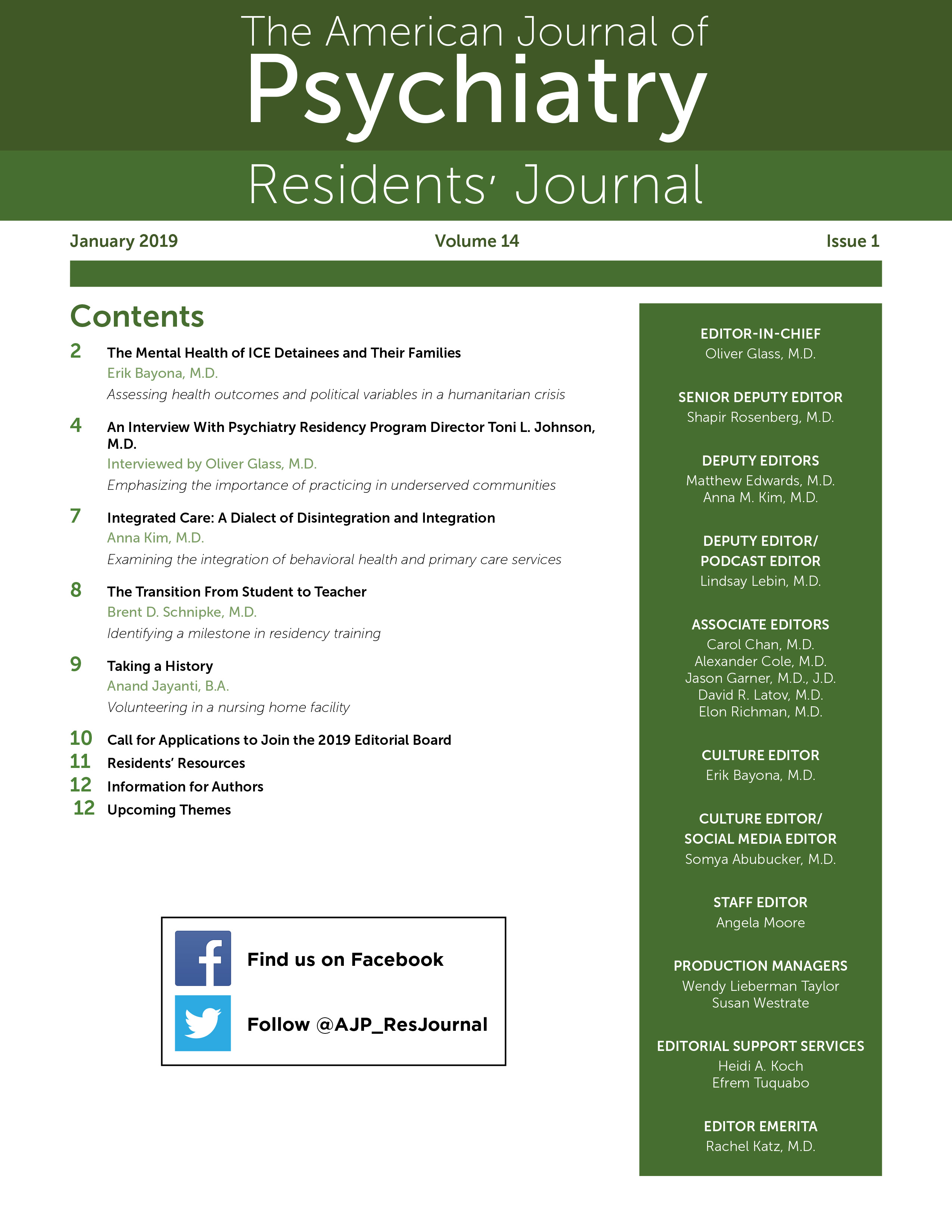My first day of residency was a Sunday. After a several-month hiatus from clinical medicine—graduation and a summer break before residency—I spent that first day trying to keep my head above water. I struggled to relearn basic medical skills: navigating the electronic medical record, conducting an interview, and designing a treatment plan. I was grateful that no one was watching me too closely as I tried to complete my work. And then, the next day, a group of new third-year medical students arrived, looking to me and the other residents. I could see in their eyes the apprehension and uncertainty but also the unashamed excitement to enter the clinical field. I thought back to myself in their position—how had it been 2 years? I didn't feel like I had learned enough to be there as a resident and at least partially responsible for their education.
Yet their enthusiastic questions—even during this vulnerable and scary part of their medical education—have shown me how much I have learned and still have to learn. It is a privilege to be around medical students and occasionally teach them something. This privilege to teach has inspired my own intellectual curiosity, encouraging me to begin again: researching relevant topics, reading recent studies, and distilling what's important. I have come to understand, even after only a few months of residency, that the role of teacher does not replace that of learner but rather augments it. Attempting to teach students makes clear my own knowledge gaps and motivates me to fill them. This constant cycle of learning is what drew me to medicine and will, I believe, keep me going throughout my career.
Furthermore, these brief moments of teaching and learning have reignited my passion for psychiatry and continually remind me why I chose this field. Covering topics such as the Mental Status Exam and the fundamentals of mood disorders reminds me how fascinating I found these topics when I was a student and still do as a resident. Finally, as I try to pass on all that was passed on to me by excellent residents, I recognize that I might be lucky enough to be the resident whose passionate talks inspire another medical student to consider choosing psychiatry as his or her specialty.
To hear questions from eager third-year students directed toward me—the resident and therefore the individual deemed to have authority and knowledge—reminds me of my place in the educational chain and is, in short, a great and humbling privilege. Their questions are thoughtful and poignant and force me to keep my knowledge up to date. More seriously, they are watching me as an example of how a doctor acts, which motivates me to do my very best. Although I haven't been doing this long, I've already realized that it's one of the great opportunities that I have to make a difference in the educating of physicians and thus in the care of patients. As doctors, what more could we ask for?
